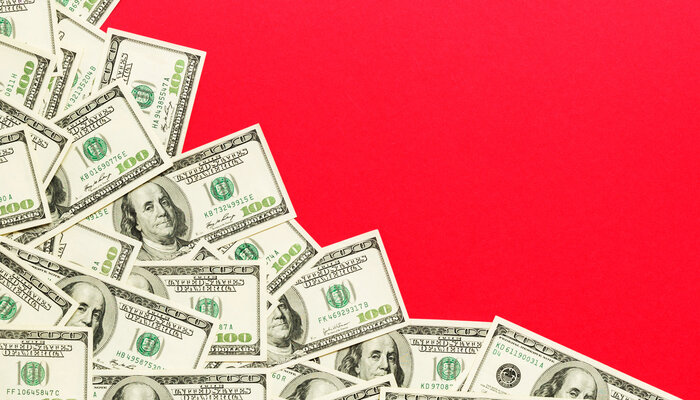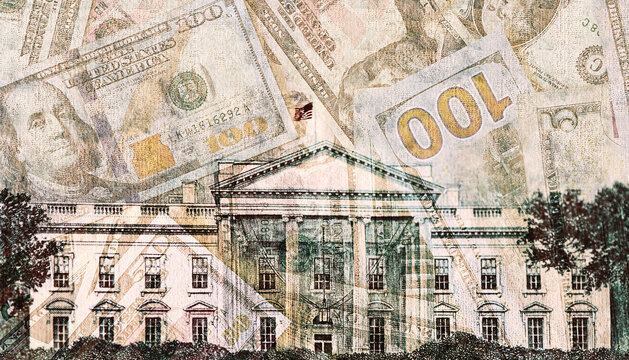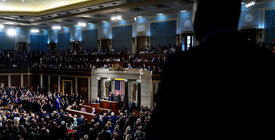
Political Donors Should Not Be Above the Law
The line between public service and private gain continues to blur as financial elites secure pardons and regulatory leniency following campaign contributions.

Part of
The Trump administration’s pattern of rewarding wealthy donors with pardons and other lenient treatment raises urgent questions about political corruption. The abuse of public office for private gain erodes public trust in government institutions and can directly harm innocent people. Reform — through stronger ethical standards, limits on the influence of large political donors, and greater transparency, including in the pardon process — is urgently needed to ensure that government decisions serve the public interest rather than personal profit.
Last December, the Consumer Financial Protection Bureau sued the operator of the payment processor Zelle and three of the nation’s largest banks for failing to protect customers from rampant fraud on the platform that caused them to lose more than $870 million. According to the bureau, Bank of America, Wells Fargo, and JPMorgan Chase left customers on their own to deal with fraud, failed to investigate complaints and issue reimbursements, and told some customers to contact the fraudsters to recover their money. Around that same time, Bank of America contributed $500,000 to Donald Trump’s inaugural committee. JPMorgan Chase gave $1,033,057. The Electronic Payments Coalition — which counts the three banks as members — donated $1,000,000. In early March, not only was the case dropped, but the entire CFPB was shuttered.
This example is consistent with the broader pattern of Trump donors receiving favorable legal outcomes after making contributions. Consider the cases of two corporate executives, Paul Walczak and Trevor Milton. Walczak was convicted of misappropriating over $10 million of his employees’ payroll taxes and Milton was found guilty of securities and wire fraud for misleading inexperienced investors, many of them ordinary people who began investing during the COVID-19 pandemic to make ends meet.
Both were pardoned after Trump received contributions on their behalf. Walczak’s mother attended a $1 million‑per‑person fundraiser at Mar‑a‑Lago, and his pardon application highlighted the donation. Milton contributed $920,000 to the Trump 47 Committee last October. Milton’s pardon frees him from having to pay $661 million in restitution he owed to the investors he defrauded, many of whom suffered the loss of their retirement savings or funds they had borrowed to invest in his company.
Trump is hardly the first president to deliver favorable legal outcomes to donors following their contributions. President Bill Clinton notoriously pardoned Marc Rich, a commodities trader and fugitive who was indicted on 65 criminal counts, including tax fraud and trading with Iran while it held American hostages. Rich was pardoned shortly after his ex-wife contributed $450,000 to Clinton’s presidential library. The George W. Bush administration faced a similar scandal when Bush pardoned convicted fraudster Isaac Toussie in 2008, though Bush reversed the pardon after public outcry, saying he had been unaware of donations from Toussie’s father to Republican politicians and that the pardon raised “the appearance of impropriety.” More recently, former president Joe Biden received widespread public condemnation for pardoning his own son, Hunter – who was not a donor, but whose personal relationship with his father plainly influenced the president’s decision.
While scandals have occurred in past administrations, the scale and brazenness of politicized pardons and other favorable legal treatment under the second Trump administration stands out — and seems likely to get worse.
A notable driver of this trend is the administration’s embrace of cryptocurrency, an industry rife with scandals, fraud, and abuse. Four large players in the industry — Robinhood Markets, Coinbase, Ripple, and Kraken — each made donations ranging from $1 to $5 million to Trump’s inaugural fund. In the early months of the Trump administration, these companies had Securities and Exchange Commission cases against them dismissed, sparing them from accountability for alleged bad business practices, such as selling unregistered securities and providing regulated financial services without SEC approval.
There is also the issue of Trump’s own cryptocurrency businesses. The ventures known as World Liberty Financial (WLF) and the $TRUMP meme coin represent some of the most glaring conflicts of interest ever associated with a sitting or former president, as individuals and entities with business before the U.S. government can spend money directly with the president’s family business. In May, Trump raised alarms when he held a private gala for his meme coin’s largest holders.
One of the attendees at that event was the Chinese billionaire Justin Sun. In 2023, the SEC brought civil fraud charges against Sun, alleging the unregistered sale of crypto securities, market manipulation, and deceptive practices, such as paying celebrities to promote tokens without disclosing their compensation. In January, Sun purchased $75 million of $TRUMP with 75 percent of the profits ($56.25 million) going directly to the Trump family. The next month, court documents showed that the SEC had agreed to pause the case as they engaged in talks with Sun to resolve the claims. In July, Sun announced his intention to purchase $100 million more of $TRUMP. Recently, he complained on social media that his $WLFI coins (a different coin sold by World Liberty Financial) had been “unreasonably frozen,” but then announced that he would be purchasing even more $WLFI tokens. His case remains pending, but there is no indication the SEC is actively pursuing it.
These examples give the appearance of legal favoritism for donors and other benefactors and come at a time of sharply decreased faith in American government. In 2024, Pew research found that trust in the federal government has steadily declined over the last 60 years, from 77 percent to 22 percent. NORC, a nonpartisan research center at the University of Chicago, found that 7 in 10 Americans believe that corporations and the wealthy control the government and that politicians are only in it for themselves.
Handing out pardons and legal favors to donors blurs the line between public duty and private gain, and it is likely to further erode Americans’ trust in government. Reform — including new ethical standards, limits on the influence of large political donors, and greater transparency (including for the pardon process) — has never been more urgent.
More from the Corruption in America collection
-
Fossil Fuel Industry Donors See Major Returns in Trump’s Policies
The Trump administration’s embrace of the oil and gas industry’s agenda provides another example of how wealthy special interests shape policies. -
Million-Dollar Donors Flooded Trump’s Second Inauguration
The inauguration raised more money from donors contributing at least $1 million than any prior inauguration fundraised altogether. -
Wealthy Donors See Returns in House Budget Overhaul
The bill’s tax benefits for the ultra-rich present a familiar story of donors’ outsize influence.



